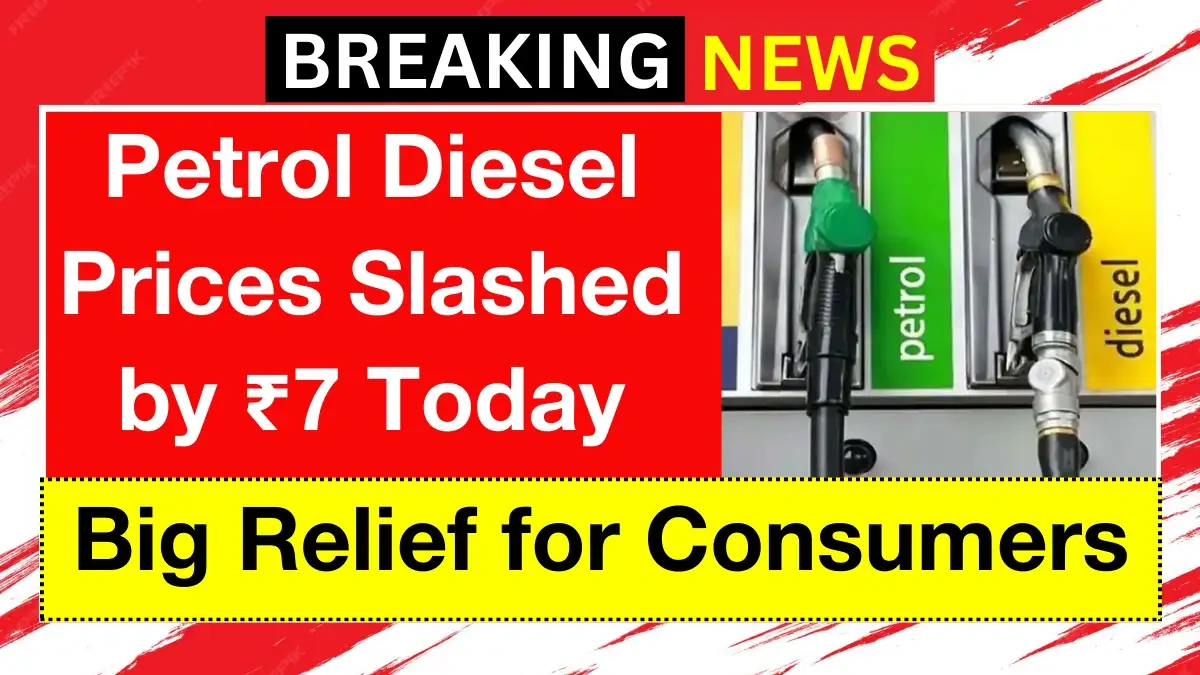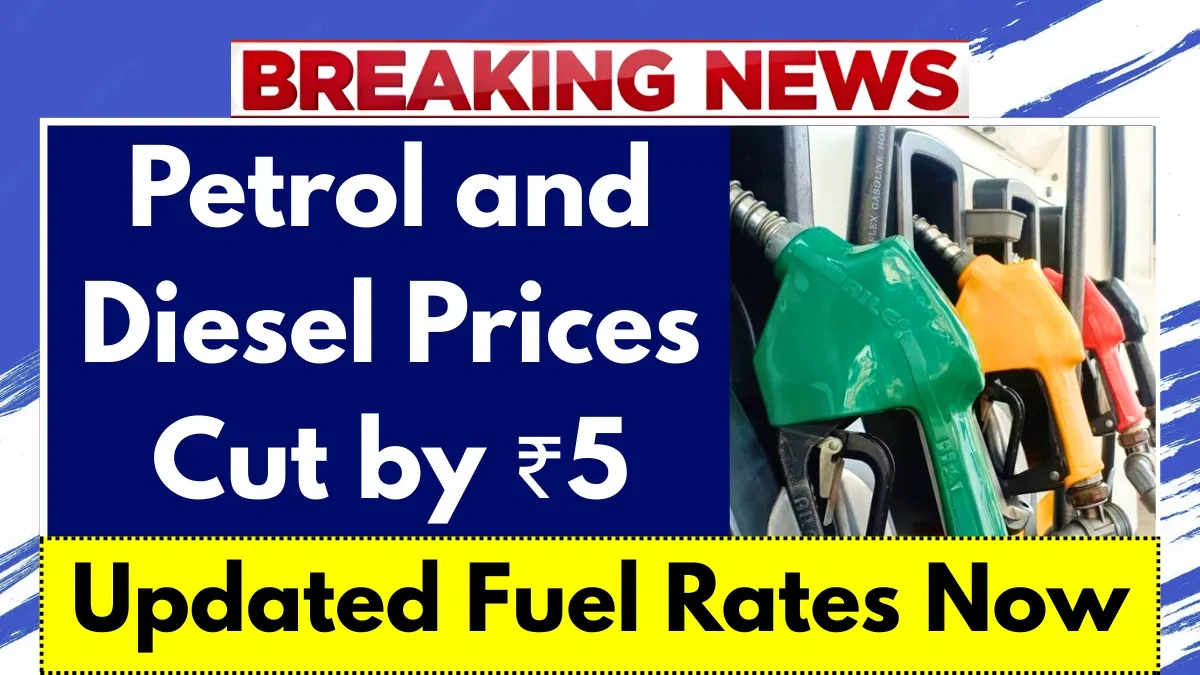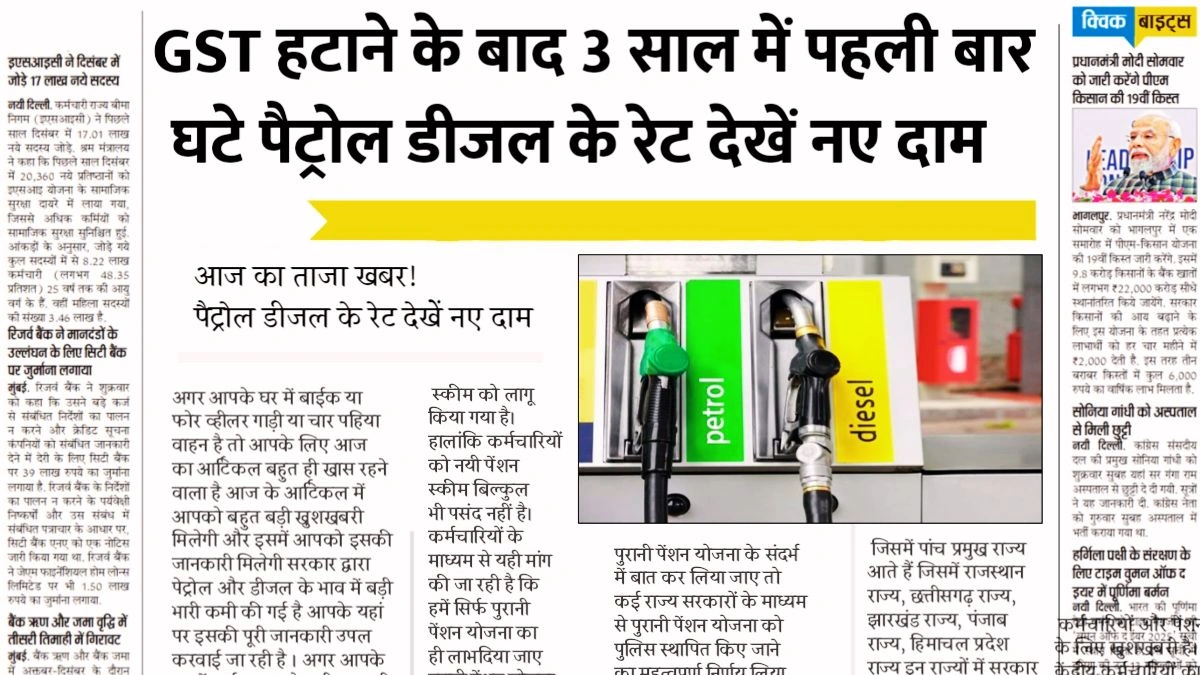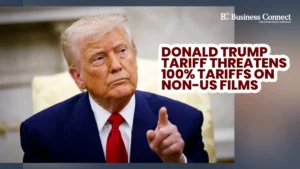Petrol & Diesel Prices | What’s Really Going On? (India Edition)
Alright, let’s talk petrol and diesel prices. Not just the daily updates – we’re drowning in those, right? – but the why behind the numbers. What I’m interested in, and I bet you are too, is what these fluctuating prices actually mean for our wallets, our commutes, and even the bigger picture of India’s economy. So, ditch the surface-level news and let’s dive deep. You might be surprised by what we uncover.
The Rollercoaster Ride | Why So Volatile?

Here’s the thing: petrol diesel prices update aren’t some random lottery. They’re tied to a tangled web of global factors. We’re talking crude oil prices, international politics, currency exchange rates, and even government policies. Think of it like this: India imports a huge chunk of its crude oil. When the price of that oil goes up internationally, it hits us directly. But it’s not just about the raw cost. The value of the Indian Rupee against the US Dollar plays a massive role. A weaker Rupee means we pay more for the same amount of oil. And then there are the taxes – both central and state – which can significantly inflate the final price you see at the pump. According to recent reports from the Ministry of Petroleum and Natural Gas, these taxes constitute a significant portion of the retail price. It’s a complex situation, to say the least.
But, here’s where it gets interesting. Sometimes, even when global oil prices are stable, we see fluctuations. Why? Because of supply and demand dynamics within India. Increased demand during festival seasons, for example, can push prices up. Or, strategic decisions by oil marketing companies (OMCs) like Indian Oil, Bharat Petroleum, and Hindustan Petroleum can also influence the market. Understanding these underlying factors is key to predicting – or at least understanding – the next price swing.
Decoding the Daily Price Changes | A Practical Guide
Ever wonder how the daily price changes are calculated? Let me break it down. Since the deregulation of petrol and diesel prices, OMCs have the freedom to revise prices daily based on the average international crude oil price in the preceding 15 days and the exchange rate. They factor in refining costs, marketing costs, and of course, those hefty taxes. The final price is then announced at fuel stations every morning at 6 AM. It’s supposed to be transparent, but let’s be honest, it can still feel a bit opaque. One trick is to follow reliable sources – like the Fuel Prices section here on GoTrendingToday – that track these changes and offer explanations. I initially thought this was straightforward, but then I realized how many people are confused by the jargon. Let me rephrase that for clarity: keep an eye on trusted news and analysis to make sense of the daily fluctuations.
Also, a common mistake I see people make is ignoring the impact of local taxes. Different states have different tax structures, which is why you see variations in petrol and diesel prices across the country. So, what you pay in Delhi might be significantly different from what you pay in Mumbai or Chennai. Keep that in mind when you’re comparing prices and planning your fuel budget. Furthermore, the role of oil marketing companies is pivotal in determining the final cost. They often adjust prices based on their operational costs and profit margins, adding another layer of complexity to the pricing mechanism.
The Impact on Your Wallet | Smart Strategies for Saving
Okay, let’s get real. Fluctuating fuel prices directly hit our pockets. So, what can we do about it? Here are a few strategies that I’ve found helpful:
- Track Prices: Use apps or websites to monitor daily price changes and fill up when prices are relatively low.
- Drive Efficiently: Avoid aggressive acceleration and braking. Maintain a steady speed. Regular car maintenance is also important.
- Consider Alternatives: If possible, explore public transport, carpooling, or even cycling for shorter distances.
- Fuel Rewards Programs: Many fuel companies offer loyalty programs that can save you money on fuel purchases.
- Electric Vehicles: If you’re in the market for a new vehicle, consider an electric vehicle. They have a higher upfront cost, but significantly lower running costs.
Let’s be honest, none of these are silver bullets, but they can collectively make a difference. What fascinates me is how small changes in our behavior can lead to significant savings over time. And don’t underestimate the power of collective action. The more people demand transparency and accountability from OMCs and the government, the more likely we are to see fairer pricing policies.
The Bigger Picture | Economic and Environmental Implications
Rising fuel costs aren’t just a personal financial issue; they have broader economic and environmental consequences. Increased transportation costs can lead to higher prices for goods and services, contributing to inflation. This can particularly affect low-income households, who spend a larger proportion of their income on fuel and transportation. Furthermore, the reliance on fossil fuels contributes to air pollution and climate change. India is already facing severe air quality challenges in many cities, and burning petrol and diesel exacerbates the problem. This is why the government is pushing for greater adoption of electric vehicles and alternative fuels like CNG and biofuels.
As per the guidelines mentioned in the information bulletin, the government is also focusing on increasing domestic oil production and diversifying its energy sources to reduce its dependence on imports. This is a long-term strategy, but it’s crucial for ensuring energy security and mitigating the impact of global price fluctuations. The impact on the Indian economy is substantial, affecting everything from agriculture to manufacturing. The petrol diesel price hike can lead to increased operational costs for businesses, potentially impacting their competitiveness and profitability.
Moreover, the environmental implications are becoming increasingly concerning. The emissions from vehicles contribute significantly to air pollution, leading to respiratory problems and other health issues. The government’s push towards electric vehicles and biofuels is a step in the right direction, but more needs to be done to promote sustainable transportation and reduce our carbon footprint.
Future Trends | What to Expect in the Coming Months
Predicting the future of petrol and diesel prices is like trying to forecast the weather – it’s inherently uncertain. However, we can identify some key trends that are likely to shape the market in the coming months. Global oil prices are expected to remain volatile due to geopolitical tensions and supply disruptions. The demand for oil is also likely to increase as the global economy recovers from the pandemic. This could put upward pressure on prices. However, increased production from OPEC countries and the potential for a new nuclear deal with Iran could help to stabilize prices. Ultimately, the trajectory of petrol and diesel prices will depend on a complex interplay of these factors. Keep an eye on international news and economic indicators to stay informed. Also, exploring options for alternative fuel sources and adopting energy-efficient practices can offer some insulation against the volatility.
One thing is clear: the era of cheap and stable fuel prices is probably over. We need to adapt to a world where prices are more volatile and unpredictable. This means being smarter about our fuel consumption, exploring alternative transportation options, and demanding greater transparency and accountability from the government and OMCs. It’s not just about saving money; it’s about building a more sustainable and resilient future.
As India navigates its energy needs, the conversation around sustainable transportation solutions is crucial. Transitioning to cleaner energy sources will not only mitigate environmental impact but also promote economic resilience in the face of fluctuating global oil prices.
FAQ
Why do petrol and diesel prices change every day?
Prices are revised daily based on fluctuations in international crude oil prices and exchange rates.
How can I find the most up-to-date petrol diesel prices?
Many apps and websites track daily fuel prices, like the GoTrendingToday fuel price tracker.
Are petrol and diesel prices the same across India?
No, prices vary due to different state taxes and transportation costs.
What steps is the government taking to control fuel prices?
The government is promoting domestic oil production, diversifying energy sources, and encouraging the use of alternative fuels.
Can electric vehicles really save me money in the long run?
Yes, while the initial investment is higher, EVs have significantly lower running costs due to cheaper electricity compared to fuel.













